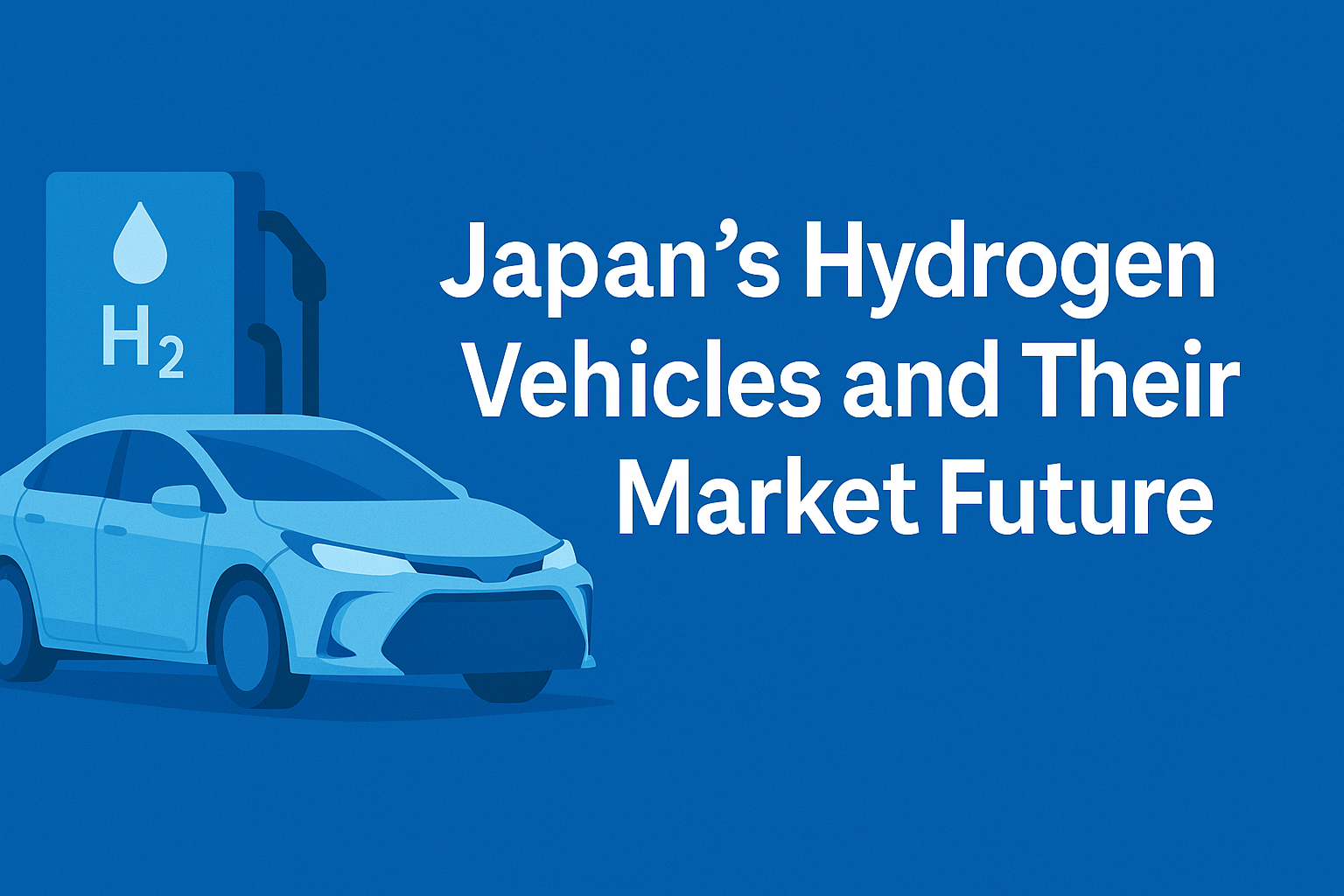How Japan Is Driving Toward a Cleaner, Hydrogen-Powered Tomorrow
As the global automotive industry explores alternatives to gasoline and diesel, hydrogen-powered vehicles (FCEVs) are gaining attention as a viable, zero-emission solution — and Japan is leading the way.
From government support to technological breakthroughs, Japan has positioned itself as a global leader in the development, production, and promotion of hydrogen fuel cell vehicles. While still a niche market, the momentum is building rapidly — both domestically and internationally.
This article explores the current status of Japan’s hydrogen vehicle sector, its future potential, and what it means for importers and eco-conscious buyers around the world.
1. What Are Hydrogen Fuel Cell Vehicles (FCEVs)?
FCEVs use a chemical reaction between hydrogen and oxygen to generate electricity — which then powers an electric motor. The only emission from the exhaust pipe is pure water vapor.
Key features:
-
Zero CO₂ emissions
-
Refueling in just 3–5 minutes
-
Longer driving range than many EVs
-
Smooth and quiet operation
Unlike battery-electric vehicles (BEVs), FCEVs don’t require long charging times or heavy batteries.
2. Japan’s Commitment to Hydrogen Mobility
Japan was one of the first countries to embrace hydrogen technology at the national level. The government has invested heavily in:
-
Hydrogen fueling infrastructure across major cities
-
Subsidies for fuel cell vehicle development
-
Research collaborations with Toyota, Honda, and Nissan
-
International partnerships with countries such as Germany and Australia
Japan’s Basic Hydrogen Strategy aims to have 800,000 FCEVs on the road by 2030 and expand hydrogen stations to over 900 locations nationwide.
3. Notable Hydrogen Vehicles from Japan
Toyota Mirai
-
One of the world’s first commercially available FCEVs
-
Sleek sedan with a range of over 600 km
-
Available in multiple countries including the U.S., Germany, and UAE
Honda Clarity Fuel Cell
-
Elegant and efficient design
-
Smooth drive with strong performance
-
Leasing offered in Japan and select international markets
Toyota Sora (Hydrogen Bus)
-
Used in Tokyo’s public transportation system
-
Represents hydrogen’s potential in public and commercial fleets
4. Market Potential Outside Japan
While infrastructure challenges remain, interest in hydrogen vehicles is growing in:
-
Europe (Germany, Netherlands, Norway)
-
North America (California and British Columbia)
-
Middle East (UAE and Saudi Arabia)
-
Asia-Pacific (South Korea and China)
Japanese hydrogen vehicles are already being exported to these regions, often as government or fleet vehicles, with interest growing in the private sector.
5. Used Hydrogen Vehicles: Export and Maintenance
Although still new to the global used car market, Japanese hydrogen vehicles are gradually appearing at auctions and for resale.
Considerations for buyers:
-
Confirm availability of hydrogen stations in your country
-
Ensure access to trained maintenance technicians
-
Check vehicle condition and hydrogen tank certification (valid for 15–20 years)
While early-stage, used FCEVs offer an opportunity to access cutting-edge clean technology at lower costs.
Trusted Exporters of Japanese Eco-Friendly Vehicles
To purchase hydrogen vehicles from Japan, work with experienced exporters who understand eco-tech logistics:
-
EVERY Co., Ltd. – Focused on quality Japanese exports
-
SBT Co. Ltd.
-
Be Forward
-
Qualitex Trading
-
Autorec Enterprise Ltd.
These companies handle inspection, documentation, and customer support for global buyers.
Learn more:
Top Recommended Japanese Used Car Export Companies for International Customers
Final Thoughts: A Hydrogen Future Begins in Japan
While electric vehicles dominate headlines, hydrogen remains a powerful and flexible solution for the future of transportation — particularly for long-range travel, buses, and fleet use. With strong government backing and world-class engineering, Japan continues to shape the roadmap for hydrogen mobility.
Whether you’re looking for cutting-edge technology or sustainable import options, Japan’s hydrogen vehicles are worth watching — and owning.
